

~~~~~~~~~~~~~~~~~~~~~~~~~~~~
SCUBA News (ISSN 1476-8011)
Issue 244 - October 2020
https://www.scubatravel.co.uk
~~~~~~~~~~~~~~~~~~~~~~~~~~~~~
Hello - welcome to SCUBA News. Many of us are desperate to go diving abroad, but it's not easy. However, liveaboards are running and there are some bargains to be had if you book a trip, including to the Red Sea, Galapagos and the Maldives. Look out for booking conditions which allow trips to be rescheduled or refunded if affected by COVID-19 restrictions, and insurance that covers COVID-19.
Contents:
What's new at SCUBA Travel?
Diving with Oceanic Whitetip Sharks
Diving news from around the World
Download as a pdf file
 |
Identify the sea life you see whilst diving, not just fish but coral, turtles, nudibranchs...
|
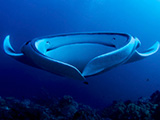 |
The Maldives is open with some great liveaboard deals now available. It is the perfect place to dive with manta rays.
|
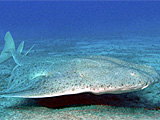 |
Diving Guide to the Canary Islands With COVID-19 cases rapidly declining in the Canary Islands they are a good option for some European winter diving.
|
The glorious oceanic whitetip sharks spend a lot of time in shallow water, tend to swim slowly and are very curious. All of these mean that divers can get superb closeup view of them.
They are easy to distinguish from the reef whitetip by their more substantial bodies, the pilot fish that continually accompany them and their rounded fins. A beautiful and awe-inspiring shark.
If you should see an oceanic whitetip, keep calm, keep facing it and move very slowly. Treat it with respect as it can be dangerous.
Oceanic whitetips used to be the most common pelagic shark in the sea, but now they are critically endangered. The best places to encounter them are at Elphinstone reef in the Red Sea, and Cat island in the Bahamas.

Oceanic whitetip shark with pilot fish. Photo credit: Johan Lantz (CC BY 3.0).
The reason it is now endangered is mostly due to fishing. In some areas it is deliberately targeted plus it is often caught as bycatch and retained for the meat and fins. The fins especially are highly prized in some markets like Hong Kong, being large and thought of as good quality. The same reasons that it encounters divers means that it is very catchable. Their numbers have declined terribly throughout its range. Scientists estimate that the population of oceanic whitetips has declined by over 98% since the 1960's.
Compounding its problems is its slow replenishment of numbers. It's thought female sharks reproduce just every other year and pregnancy lasts 10 to 12 months. Smaller females might have just one pup, although large sharks might have as many as fourteen. But the sharks are getting smaller. Female sharks don't mature until between 6 and 8 years old and only live until around 18. They give birth to live young. The average population increase per year in the Atlantic - the r number we are now all so familiar with - is just 0.126 a year.

Oceanic whitetip shark on Elphinstone reef. Photo credit: Alexander Vasenin (CC BY-SA 4.0).
There is hope for the shark though. This year the UN countries agreed to list Carcharhinus longimanus on Appendix 1 of the Conservation of Migratory Species of Wild Animals (CMS). This is the highest level of protection possible.
This large shark grows to 3.5 m long, but individuals this large are rare. It roams throughout the tropical and temperate seas, however, it seems to prefer waters above 21 oC. Although mostly keeping to shallow waters, it has been known to dive to depths of over 1000 m. They travel great distances in open ocean - one was tracked as far as 6500 km over 100 days. However, they also appear to regularly return to favourite areas. Sharks tagged in the Bahamas stayed within 500 km of the tagging site for around a month before moving to several different destinations across the western North Atlantic. After five months they were back.
Class: Chondrichthyes > Order: Carcharhiniformes > Family: Carcharhinidae > Genus: Carcharhinus > Species: Carcharhinus longimanus
Chelsey N. Young . John K. Carlson 2020. The biology and conservation status of the oceanic whitetip shark (Carcharhinus longimanus) and future directions for recovery. Rev Fish Biol Fisheries (2020) 30:293-312
Rigby, C.L.et al 2019. Carcharhinus longimanus. The IUCN Red List of Threatened Species 2019: e.T39374A2911619.
Rui Coelho et al 2009. Notes on the reproduction of the oceanic whitetip shark, Carcharhinus longimanus, in the southwestern equatorial Atlantic ocean
Urgently needed protection granted to Oceanic Whitetip Shark, SCUBA News 2020
Our round up of the best underwater news stories of the past month. For breaking news see our Twitter page or RSS feed
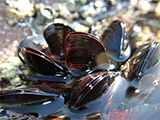 |
Tumble drying your clothes damages sea life
|
 |
Efforts to tackle shark fin trade need to focus closer to shore, study says
|
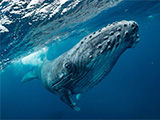 |
Humpback whales in Alaska are enjoying the cruise ship-free waters
|
 |
The world's banks must start to value nature and stop paying for its destruction
|
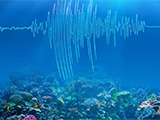 |
Sound waves show warming oceans
|
 |
Fish save energy by swimming in schools
|
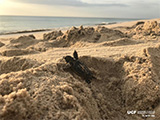 |
Green Turtle numbers up in Florida
|
 |
What if underwater robots could dock mid-mission to recharge and transfer data?
|
SCUBA News is licensed under a Creative Commons Attribution 4.0 Unported License. This means we are happy for you to reuse our material for both commercial and non-commercial use as long as you: credit the name of the author, link back to the SCUBA Travel website and say if you have made any changes. Some of the photos though, might be copyright the photographer. If in doubt please get in touch.
Photo credits: Tim Nicholson, Jill Studholme, Kristin Riser, Jianye Sui
Previous editions of SCUBA News are archived at https://www.scubatravel.co.uk/news.html
SUBSCRIBING AND UNSUBSCRIBING
Visit [UNSUBSCRIBE] and add or remove your e-mail
address. To change whether your receive the newsletter
in text or HTML (with pictures) format visit [PREFERENCES]
ADVERTISING
Should you wish to advertise in SCUBA News, please
see the special offers at
https://www.scubatravel.co.uk/newsad.html
Other advertising opportunities are at
https://www.scubatravel.co.uk/advertising.html
CONTACTING THE EDITOR
Please send your letters or press releases to:
Jill Studholme
SCUBA News
The Cliff
DE6 2HR
UK
news@scubatravel.co.uk
PUBLISHER
SCUBA Travel, 5 Loxford Court, Hulme, Manchester, M15 6AF, UK
Our newsletter, SCUBA News (ISSN 1476-8011), is absolutely free. It is a monthly publication, delivered by e-mail. To receive your copy fill in your details below. We will never pass your e-mail address to any third parties, or send you unsolicited e-mail.
To receive your copy fill in your details below. We will never pass your e-mail address to any third parties, or send you unsolicited e-mail.
You will receive an e-mail confirming your subscription. If you don't receive this you may have entered your e-mail address incorrectly - revisit this page and re-subscribe.
We love hearing from you: send us any news, dive write ups, reviews or comments